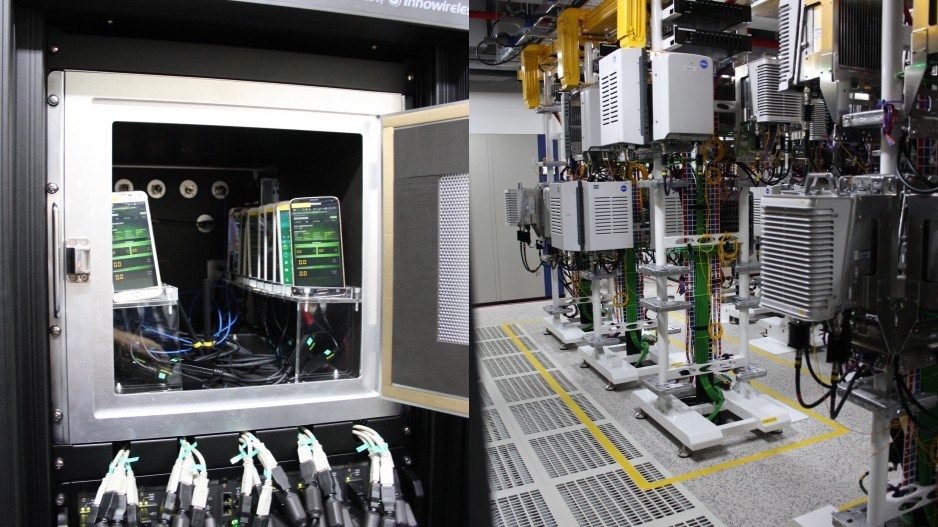The introduction of 4G networks across global wireless markets in the early part of the decade helped spark the smartphone revolution.
Instead of sending text messages and low-res photos, mobile users were able to stream high-definition videos, instantly download apps and transfer large files without sitting at their desktop computers.
Now the world’s largest telecommunications manufacturer is taking notice of Vancouver’s appetite for high-speed wireless networks by ramping up plans to introduce 5G capabilities into the Canadian market.
Chinese mobile phone giant Huawei picked downtown Vancouver in early November as the testing ground for 5G capabilities by partnering with Telus (TSX:T) to build a research lab for the next generation of wireless networks.
Telus’ 4G LTE network offers average speeds of 17.9 megabits per second (Mbps), according to wireless coverage mapping company OpenSignal.
This allows users to download a 50-megabyte app in about 30 seconds.
Industry groups and governments have yet to agree on a standard definition of 5G, but the next generation of networks is expected to be significantly faster – perhaps up to 1,000 times – to facilitate Internet of Things (IoT) capabilities.
IoT allows computer systems to transmit data between each other and respond in real time based on the information they receive without human interaction.
A 5G network would considerably lower the operating costs for IoT innovations like driverless cars.
Eros Spadotto, Telus' executive vice-president of technology strategy, told Business in Vancouver that although 5G is a wireless technology, it needs a fibre-optic network for testing.
Last month, Telus announced it would invest $1 billion in expanding its fibre-optic network throughout the city.
Scott Bradley, Huawei Canada’s vice-president of corporate and government affairs, said in an email the expansion plan for Vancouver’s fibre-optic network was one of the driving factors to build a lab.
Edmonton is the only other city in Canada that Telus has slated for a $1 billion expansion of its fibre-optic network.
Tokyo, London and Seoul were among the other cities selected for a similar Huawei 5G lab.
The South Korean government has already targeted the 2018 Pyeongchang Winter Olympics to introduce 5G to mobile customers before expanding to the rest of the country by 2020, according to Nokia’s 5G system architect in Seoul, Konrad Rozmarynowski.
One of the key differences between the Canadian and Korean markets is that South Korea’s 50 million residents are spread across 100,000 square kilometres compared with 30 million Canadians spread across 10 million square kilometres.
Spadotto said Telus is aiming to launch a 5G network by the “early 2020s” because the testing lab has yet to be built. And while Telus opened a new headquarters in downtown Vancouver earlier this year, no downtown location for the lab has been selected.
Meanwhile, Nokia has already built a 5G lab in Seoul to test the capabilities of the network ahead of the 2020 launch.
The lab features more than 200 radio frequency modules and uses more than 100 smartphones to simulate mass phone calls across the 5G network.




